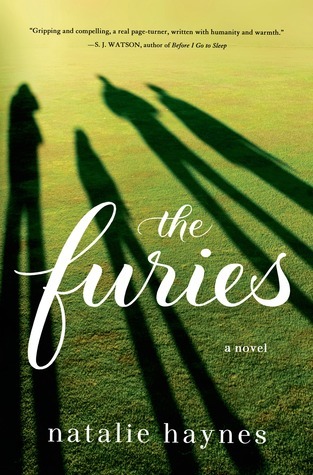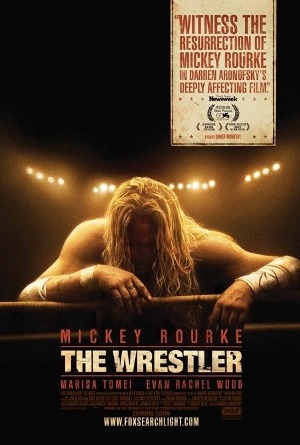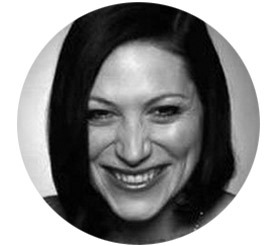You know that bit of clip art your computer used to throw up when you typed in drama? The two classical masks, one happy, one sad? That’s sort of like Natalie Haynes’s career. Not in a bad way, though. Thalia, the Muse of comedy, oversaw her first act — as a hugely successful stand-up (she was the first woman to be nominated for the prestigious Perrier Best Newcomer Award at the Edinburgh Fringe). Now it’s Melpomene’s turn, as the Muse of tragedy, to take over for Act II. The Furies (St. Martin’s Press, 2014), just published in the States, is a clever synthesis of Greek tragic tropes and modern crime fiction, set largely in a pupil referral unit in Edinburgh. (Read my review here.) Her earlier (nonfiction) book The Ancient Guide to Modern Life (Overlook Press, 2011), with its irreverent but perceptive rediscovery of contemporary culture through Greco-Roman eyes, bridged the gap.
Natalie was kind enough to drop by the blog for a chat about Sophocles and Mickey Rourke, patricide at school, and the drunks of East Anglia.
Charles Arrowsmith: Hi Natalie, thanks for your time. So The Furies is ostensibly a book about what might happen when you mix Greek tragedy with troubled adolescents. Can or should a line be drawn in terms of what texts we teach our children?
 Natalie Haynes: I think people tend to underestimate what teenagers understand. We forget, maybe, how smart we were when we were young… So I’d let them learn most things in school (I’d shy away from bomb-making handbooks and Mein Kampf, obviously). I think we worry too much about them reading Shakespeare, especially in the UK. You can find big ideas and moral dilemmas aplenty without reading Hamlet or King Lear. And Greek tragedies – in translation – are usually an easier read than Macbeth. I stand behind Alex’s choice to read Oedipus with her class: I think if you are going to win over recalcitrant teens, there are few better places to start than patricide and deviant sex. And teenagers – who have so little authority of their own, and are so often subject to the authority of others – know what it means to think about free will, more than most.
Natalie Haynes: I think people tend to underestimate what teenagers understand. We forget, maybe, how smart we were when we were young… So I’d let them learn most things in school (I’d shy away from bomb-making handbooks and Mein Kampf, obviously). I think we worry too much about them reading Shakespeare, especially in the UK. You can find big ideas and moral dilemmas aplenty without reading Hamlet or King Lear. And Greek tragedies – in translation – are usually an easier read than Macbeth. I stand behind Alex’s choice to read Oedipus with her class: I think if you are going to win over recalcitrant teens, there are few better places to start than patricide and deviant sex. And teenagers – who have so little authority of their own, and are so often subject to the authority of others – know what it means to think about free will, more than most.
CA: What’s the greatest tragedy of modern times?

Mickey Rourke: Sophoclean?
NH: Well, I would argue that the first three seasons of HBO’s magnificent TV show The Wire are a perfect Greek tragedy. And the Mickey Rourke film The Wrestler (how did he not win that Oscar?) is pretty Sophoclean: a hero whose fatal flaw leads him to the exact behaviour which will cause his undoing. Hard to argue with Arthur Miller, too, especially Death of a Salesman. I can’t pick one. Sorry. My tragic flaw is clearly an inability to favour one medium over another. Could be worse, I suppose.
CA: Your first novel is a tragedy but your career to date has mostly been in comedy. How did the latter prepare you for the former?
NH: I’m with Woody Allen on this: comedy = tragedy + time. Aristotle would probably have had less of a problem with this than we do. He knew that comedy and tragedy are both cathartic. Tragedy prepares us for the worst things to come in our lives. It allows us to rehearse our responses to grief. But comedy is a different kind of catharsis: it allows us to laugh at other people’s tragedy, and perhaps ultimately laugh at our own. My particular kind of comedy was quite tragedy-obsessed, I guess. I am way happier onstage now I’m there to talk about Greek tragedy or Juvenal or something else classical. Worryingly, I think I am probably funnier now, too…
CA: As a stand-up comedian you must be well prepared for the SpeakEasy stage. What’s been your single worst moment onstage?
NH: I’ve blanked most of them out. A short memory is crucial for a comedian, or we could never go out of the house again. I have had some terrible gigs, though. Sometimes I was bad, sometimes the audience was bad, sometimes it was both of us. I remember the drunk man in Peterborough who stormed the stage and wrenched the microphone from my hands (nothing personal, he just wanted to sing). I remember going onstage the night my grandfather died, and being way too upset to fake being funny. I remember demolishing a crazy heckler, because I felt that he was threatening my gig (no excuse for being as poisonous as I was). Ah, memories. And people wonder why I prefer writing sad books…
CA: As a prolific judge of literary prizes, can you give us a feel for the state of the art?
NH: Last year, I judged the Man Booker Prize and then immediately began the reading for the Independent Foreign Fiction Prize (awarded to fiction translated into English). And I judged the Orange Prize in 2012. So I have read something like three hundred novels in thirty months, which I cannot recommend, unless you want to have the worst posture in the world. On the plus side, it is an amazing way to read a pile of books you would never have chosen in a million years, which has been great. They haven’t all been great, you understand. A lot of them were bloody awful. But it’s still good to read outside of your own taste. My conclusions are: publishers take the past more seriously than they take the future. They submit a lot (I mean a lot) of historical fiction for prizes. They don’t champion futuristic fiction anywhere near as much. In related news: comic novels are rarely as funny as they could or should be. Crime novels are hard to give prizes to, because they don’t stand up especially well to being re-read a month or two after a first reading. If I never read another novel set in or around the Second World War, it will be too soon. Quirky child narrators drive me mad. Quirky narrators with Asperger’s, ditto.
CA: What are the last three books you’ve read?
NH: I have just read (and reviewed) The Amazons by Adrienne Mayor, in which she unpicks myths and legends and histories of warrior women in the ancient world. Fascinating, and super-readable. Before that, I read Ali Smith’s How to be Both, which is insanely good: there are two stories which intertwine with each other. You can read them in either order, and the book is cleverly published so you have to open it up to see which one they’ve printed first. And before that, I read Neel Mukherjee’s The Lives of Others, which is a wonderful family and political saga, set during the Naxalite rebellion in India. Three great books in a row. I must be due a rotten one…
CA: Thanks so much for your time, and see you on the 29th!
You can buy tickets to see Natalie Haynes — alongside John Guare, Gail Sheehy, Marcelo Gleiser, and Andrew Solomon — in Inside the Lie at City Winery on September 29 here. You can buy Natalie Haynes’s debut novel, The Furies, at McNally Jackson.





